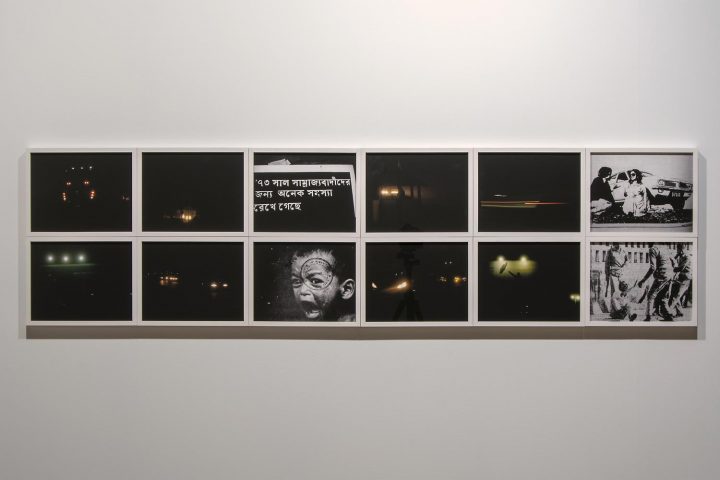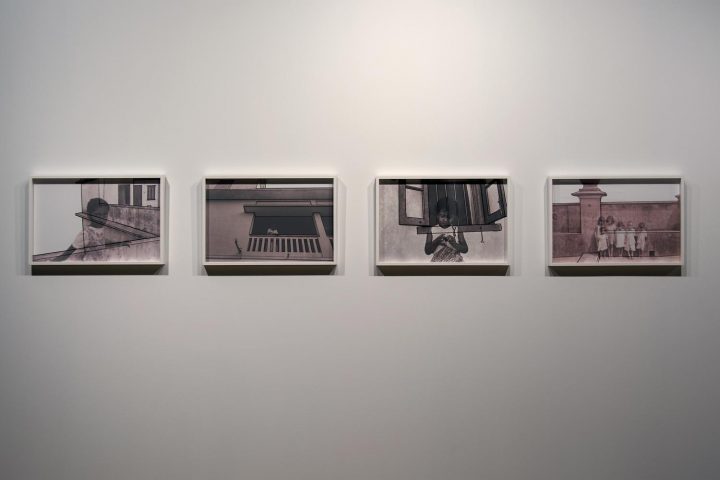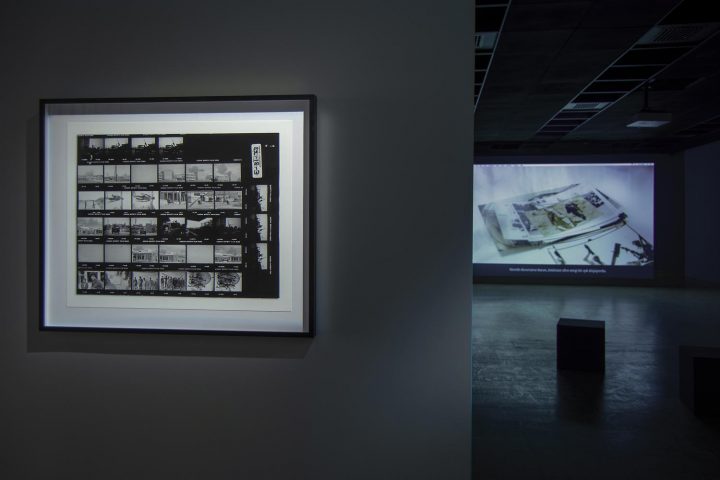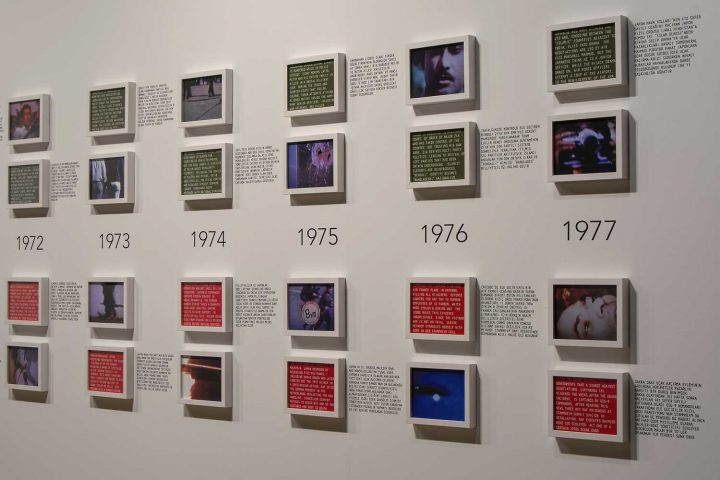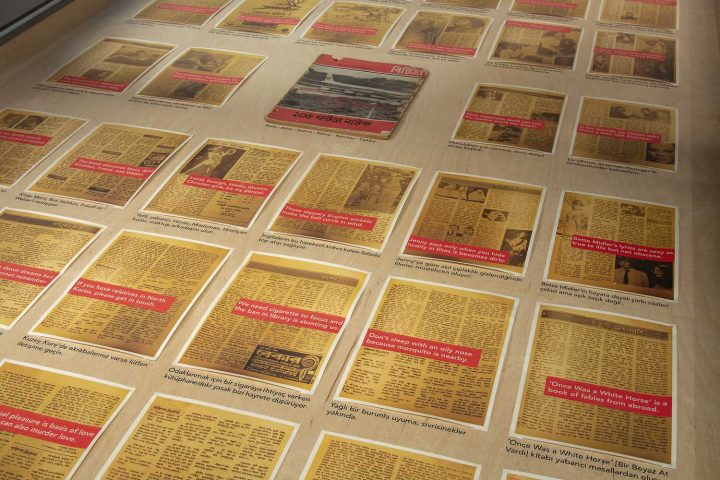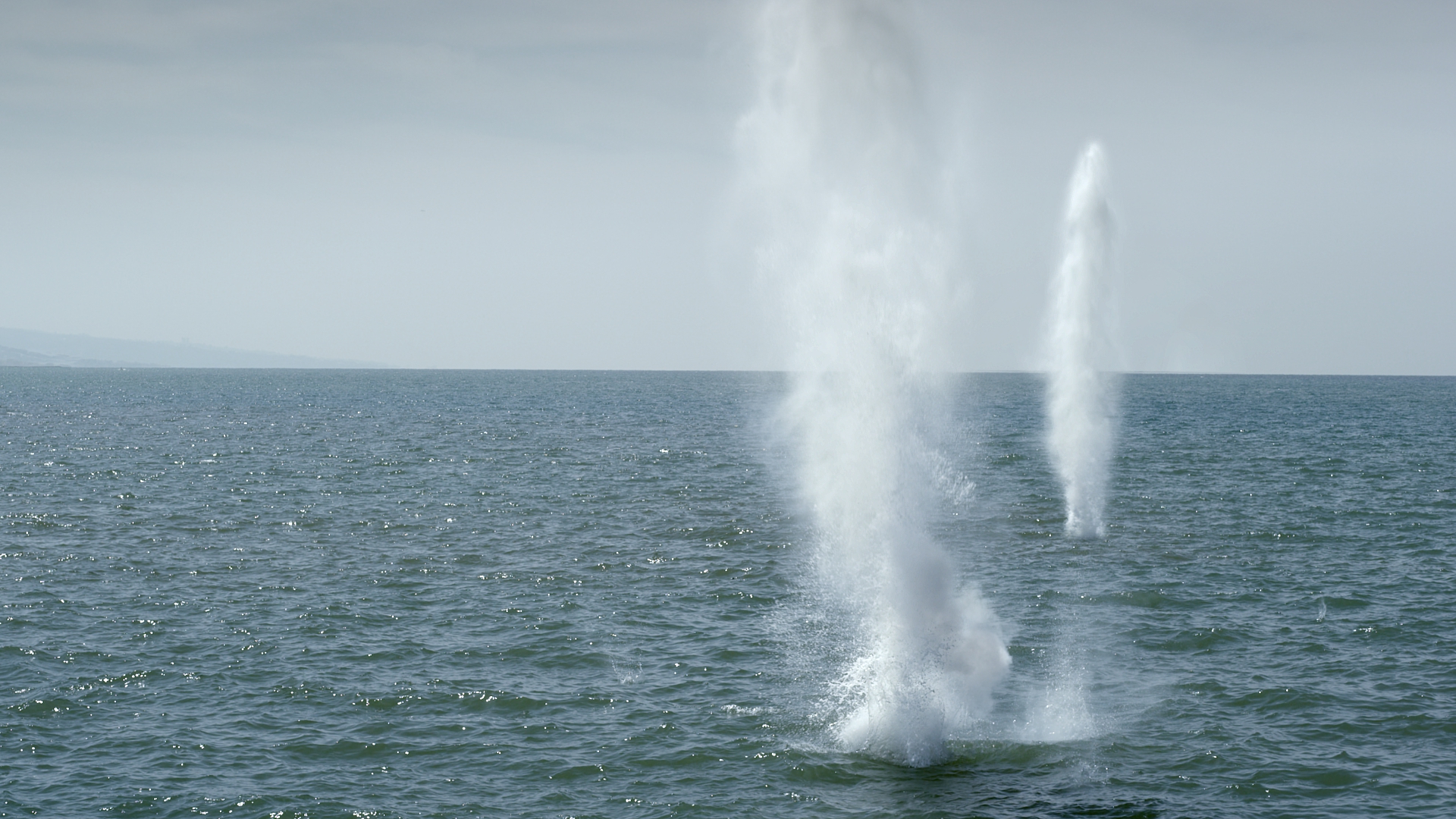Considering three particular moments in the intersected histories of India, Pakistan, and Bangladesh — the 1905 partition of Bengal within British India, the 1947 partition of British India into India and Pakistan, and the 1971 war that split East and West Pakistan into today’s Bangladesh and Pakistan — Naeem Mohaiemen’s “Prisoners of Correct History” renders the encoded scripts of postcolonial narratives and political failures in a variety of media.
The history-museum-like scenography of the exhibition not only directs the audience through a precise course and presentation of the works, cross-referencing stories, myths, found footage and photographs, archives, news media materials, and text, but it also reveals the research and methodology of the author as artist and historian. Each piece leads to another, and each becomes an integral gear in the knowledge production mechanism of the exhibition. At the same time, Mohaiemen’s subtle use of black humor, the exhibition’s ambiguous and tidal movement between official and off-the-record narratives, along with references to pop culture, all create an atmosphere that breaks the rigidness of the setting. At times the pace of the works breaks this flow, such as in the video Tripoli Cancelled (2017), in which a man is pictured drifting through an abandoned airport. The slow movements of the camera mimic the experience of the film’s subject, who spends 3753 days alone in the airport. The video United Red Army (2011) revisits the 1977 hijacking of Japanese Airlines Flight 472 by the radical anti-imperialist communist group the Japanese Red Army, in which the plane was landed in Dhaka, Bangladesh. In Mohaiemen’s video, we hear Bangladesh Air Force chief A. G. Mahmud negotiating with the hijackers’ spokesman, who goes by “Dankesu,” over the course of five days. In the diverse strata of political and social conflicts present in Turkey at this very moment, “Prisoners of Correct History” feels unquestionably relevant in its presentation of the lives and realities troubled by the consequences of a shared global history.

